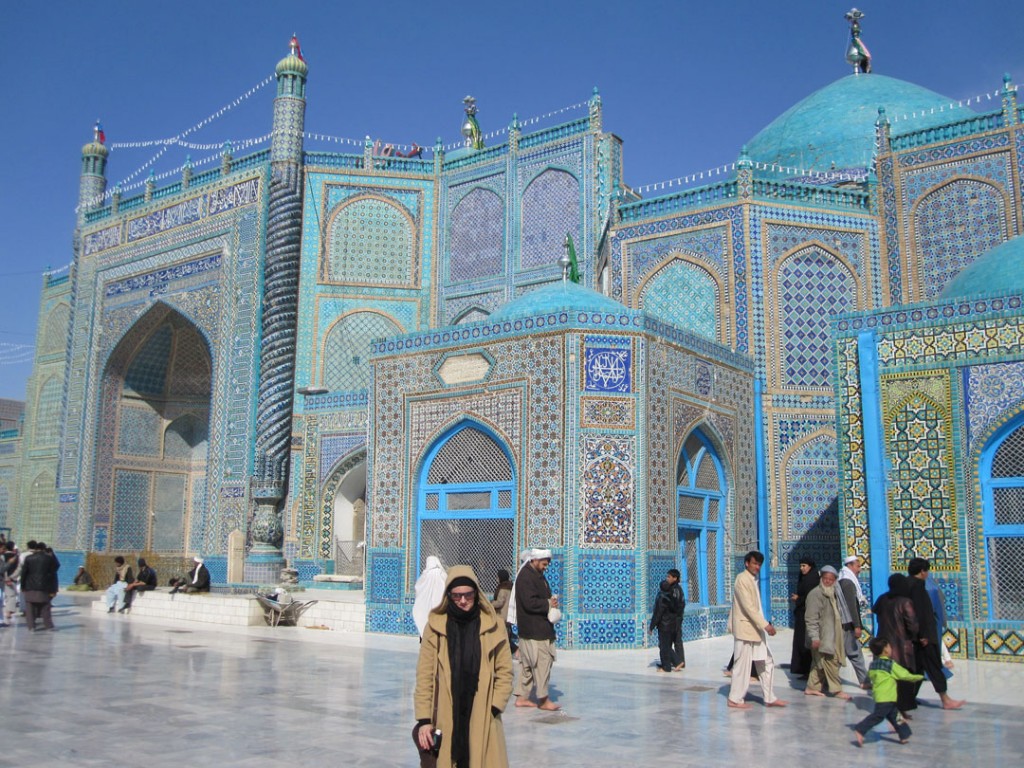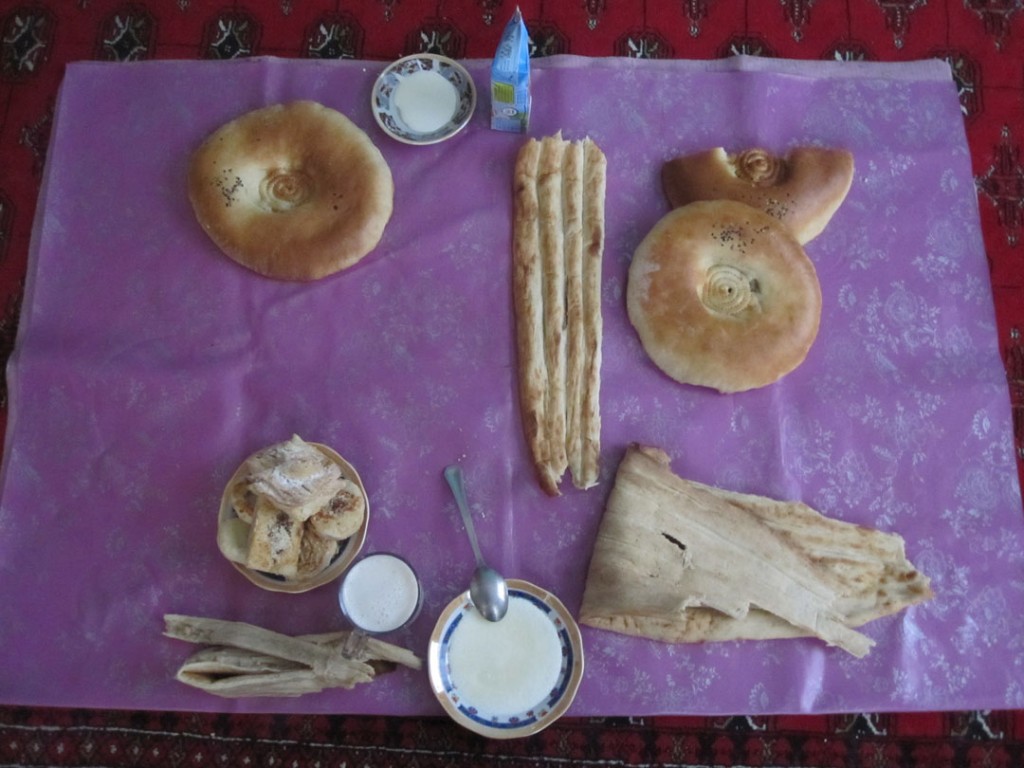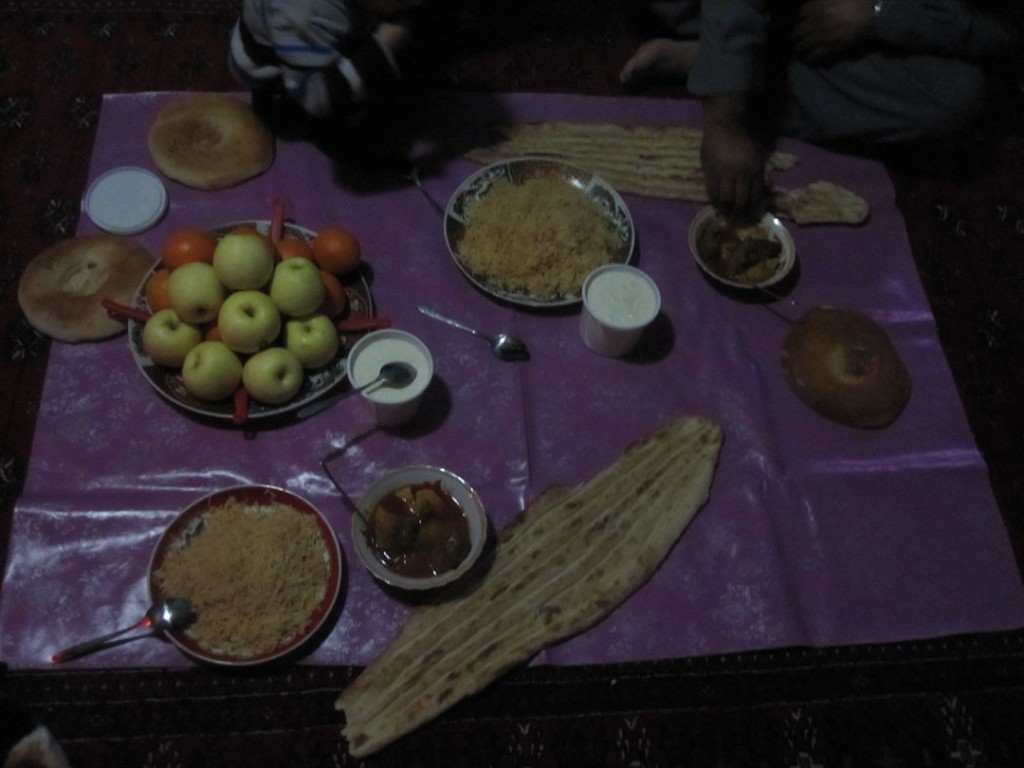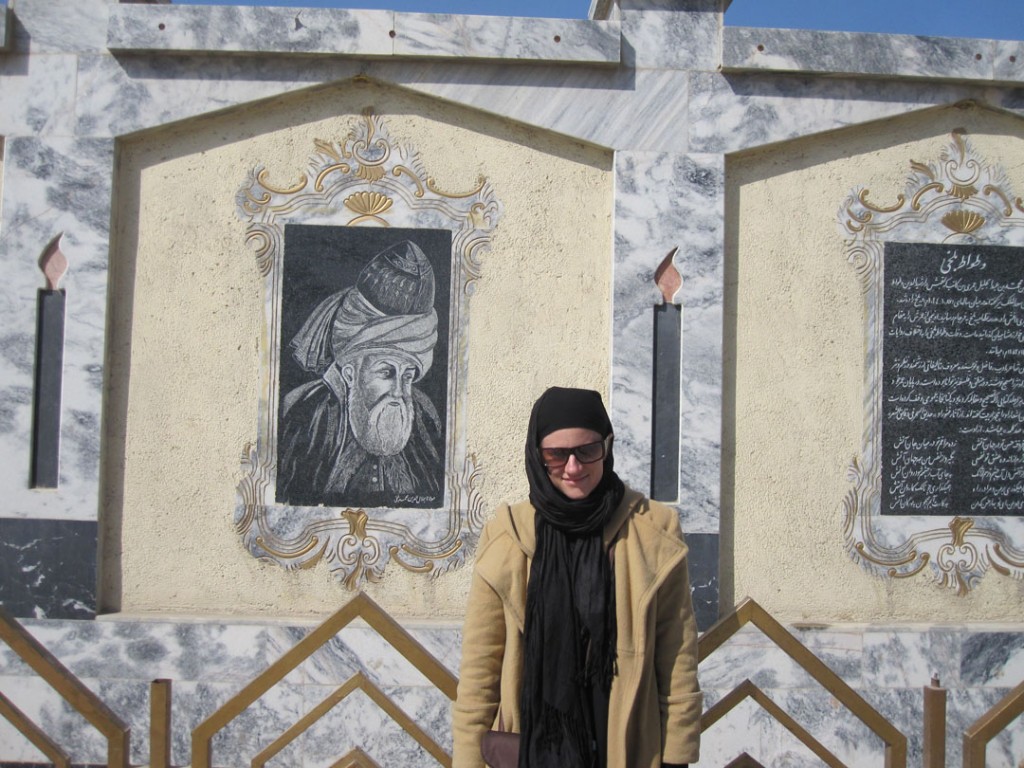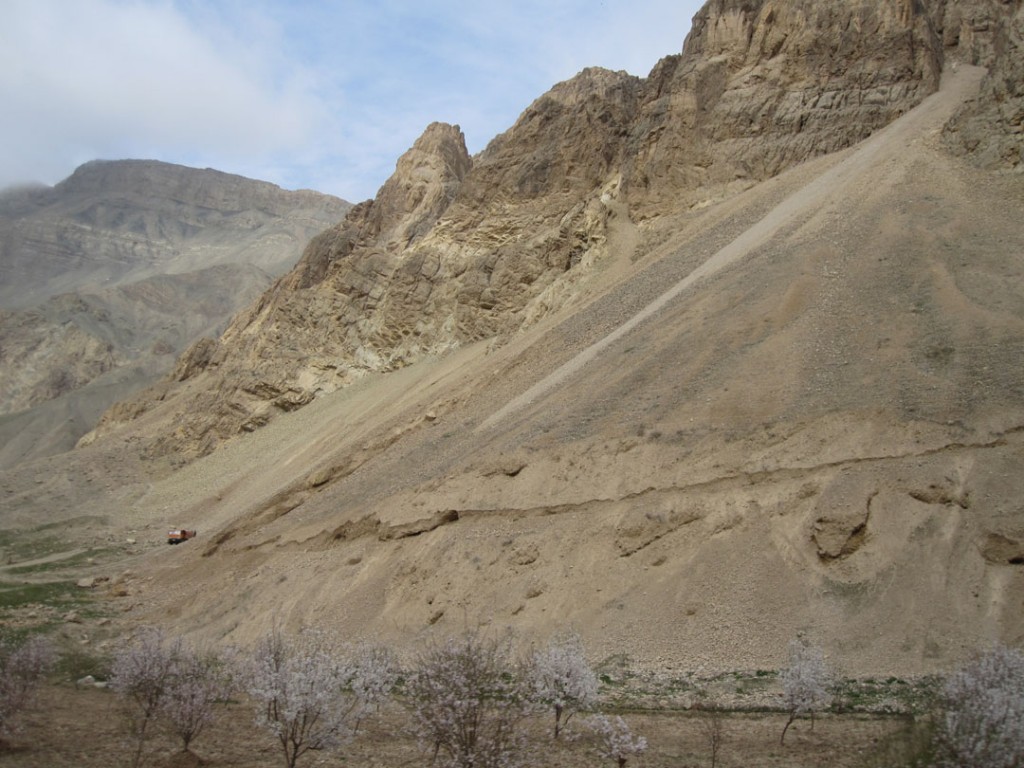I’m happy to share my new Op-Ed on Afghanistan in the Huffington Post–which discusses my time living with a kind family in Afghanistan, while trying to do my small part in promoting peace. I have written a chapter about this extraordinary and unique experience in my upcoming memoir to give a glimpse into daily life in Afghanistan and Sufi shrine visitation–as well as my own personal feelings about being there during a time of war…
Below are some photographs I snapped along the way in Afghanistan–where I was extremely fortunate to be treated to the best of Afghan hospitality (it is legendary for a reason)–not only by my host family, but also by many people I encountered on the road and at Sufi shrines…
The picture above shows the simple but delicious breakfast we ate each morning, and below is a picture of one of our dinners–when the lights went out, as they do every night…
In the Huffington Post piece, I also mention visiting the home of Rumi’s father in Balkh. While Rumi may be one of the best-selling poets in America, he is not often put in his proper context as a war refugee, writing in exile from his home.
When he was just a child, Rumi’s family was forced to leave Afghanistan, due to the destructive onslaught of the Mongols. As a result, he spent his teen-age years wandering as a refugee with his family–until they settled in Konya, where he is buried today. Since Rumi himself knew first-hand the tragedy and terror of war, it was particularly poignant to see Rumi’s image posted all around Mazar-i Sharif and Balkh.
Lauded as a poet of peace, it is easy to forget that Rumi’s embrace of transcendence was shaped under the dark clouds of war–rolling in from both the east and the west.
If I die in this war, this combat with you,
I won’t so much as sigh, for fear of troubling you.
I’ll die with a smile, like a flower in your hand,
From the cruel charm with which you cut this wound.
— Rumi
In the HuffPo piece, I also mention Rabia Balkhi, who is considered the first recorded woman in history to write poetry in Persian. In Balkh, I had the opportunity to visit her shrine–where many young couples go for a blessing, and I was delighted and surprised to find her portrait etched right near Rumi’s (above) on the road leading into Mazar-i Sharif.
Her last poem, it is said, was written in her own blood, while she was imprisoned by her brothers because of her love for a Turkish slave–a love for which she would pay the ultimate price. The Rabia Balkhi Institute of Higher Education and Rabia Balkhi Women’s Hospital in Kabul pays tribute to her in their names.
Love
I am caught in Love’s web so deceitful
None of my endeavors turn fruitful.
I knew not when I rode the high-blooded stead
The harder I pulled its reins the less it would heed.
Love is an ocean with such a vast space
No wise man can swim it in any place.
A true lover should be faithful till the end
And face life’s reprobated trend.
When you see things hideous, fancy them neat,
Eat poison, but taste sugar sweet.
— Rabia Balkhi
I’m looking forward to sharing more photographs–particularly of some Afghan children I met along the way–in an upcoming post…
